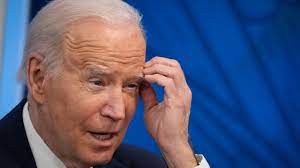Biden Admin Looking To Change Status Of Group Involved In Syria
In a development sure to provoke widespread debate, President Joe Biden is reportedly considering removing Hay’at Tahrir al-Sham (HTS) from the U.S. Foreign Terrorist Organization (FTO) list.
HTS, a group with roots in Al-Qaeda, recently overthrew Syrian dictator Bashar al-Assad, an event that has destabilized the region further. The potential delisting would open the door for HTS to receive international aid and could see the removal of the $10 million bounty on the group’s leader, Abu Muhammad Jawlani.
Sources within the Biden administration confirmed the deliberations, with officials signaling that a decision could come soon. This move follows a pattern from the administration’s earlier days, when it removed the Houthi rebels from the FTO list—a decision that many critics argue has emboldened their terror activities in Yemen and surrounding waters.
Former CENTCOM Commander General Frank McKenzie voiced strong reservations about the possible delisting of HTS, highlighting Jawlani’s track record of terrorism. McKenzie dismissed the idea that figures with a history of extremism can undergo meaningful reform.
He also cautioned against viewing Assad’s ouster as a net positive, warning of potential power vacuums that could give rise to new extremist groups or an Islamic State resurgence. “While Assad’s fall undermines the interests of Russia, Iran, and Hezbollah, it’s not necessarily a victory for the Syrian people or the region,” McKenzie said, emphasizing the uncertain and likely grim implications for regional stability.
Sanctions relief for Iran when they helped kill almost 50 Americans in the October 7th attacks. We need to fire more than just the President. https://t.co/Opo4az5rh6
— Sarah Adams (@TPASarah) December 10, 2024
The timing of this decision raises serious questions about its implications for U.S. national security and global anti-terrorism efforts. Critics argue that removing HTS from the FTO list could legitimize the group and risk emboldening other extremist factions worldwide. Comparisons are already being drawn to the administration’s removal of the Houthis from the terrorist list, a move that critics claim facilitated the group’s continued attacks on merchant and naval vessels in the Arabian Peninsula.
For Syria, the situation remains highly volatile. The overthrow of Assad, long seen as a brutal dictator, has not brought the clarity or stability many hoped for. Instead, it has deepened uncertainty, with analysts warning of possible long-term consequences, including regional spillover effects.
The Biden administration’s rationale for considering this action remains unclear, though it could be an attempt to recalibrate U.S. involvement in Syria by supporting a group opposed to Assad. However, such a move risks undermining trust in U.S. counterterrorism policies and alienating allies concerned about empowering groups with documented ties to terrorism.

